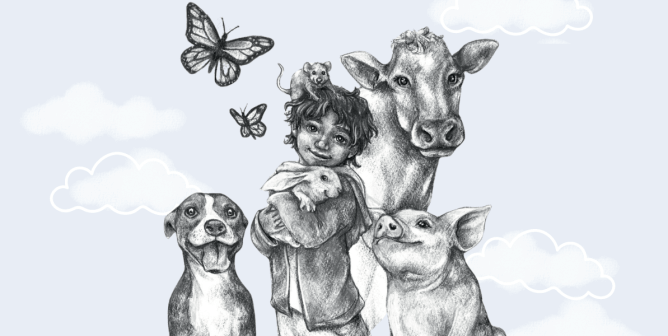Inspire Empathy for All Living Beings With a Gallery Walk
Is it fair to compare painful procedures performed on unwilling human subjects to the experiments that mutilate and kill millions of animals in laboratories? Can perpetually chained “performing” elephants be compared to the way humans have been enslaved, simply for being different?
Class discussions are an excellent way to get students thinking critically about the abstract concepts of social justice. Older students, however, are sometimes reluctant to participate in these conversations if it means speaking in front of their peers, so secondary school educators must get creative in order to inspire rich and meaningful dialog in their classrooms. A gallery walk is a thought-provoking activity that gets students out of their seats and talking to one another about important issues, such as how present societies strive to justify abuse just as societies of the past did—regardless of the victims’ species.
Materials
- 4-6 images
- Glue
- Scissors
- Construction paper
- Large pieces of paper
- Tape
- Markers
- Student notebooks
Step 1: Create Your Gallery
Begin by printing out the set of images below. Cut out each one, glue it to a piece of construction paper, and laminate it, if possible. On the day of your gallery walk, tape the images around your classroom at eye level. Next to each one, tape a large piece of paper to the wall. Have markers available at each station.

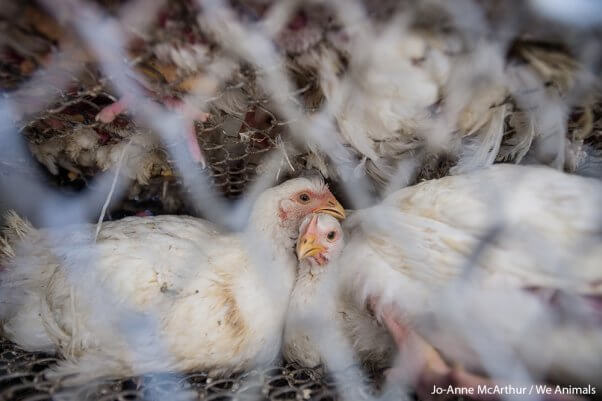
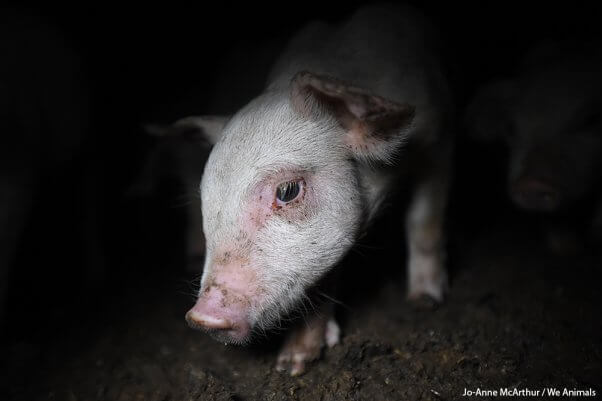


Your images should look something like this:
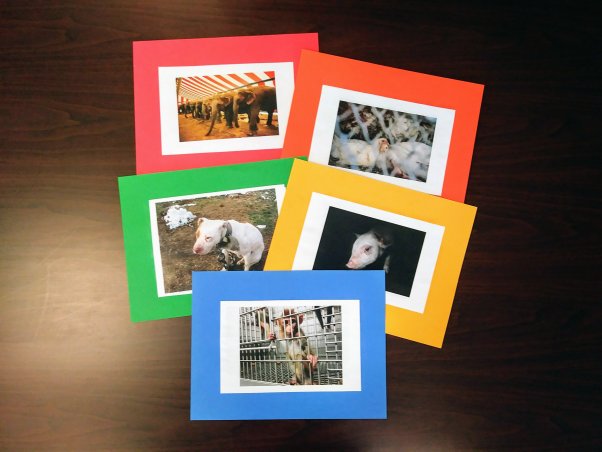
Step 2: Conduct Your Gallery Walk
Explain the rules of the gallery walk. Tell students that much as they would explore an art gallery, they should walk around the room and consider each image at least once. On the piece of paper next to the image, they should write whatever thoughts or feelings come to mind. They may write as little as one word, such as “suffering,” or as many as a few sentences. If they’ve responded to each image and time is left, students should revisit images and add more impressions to the paper.
Encourage students to circle important words or phrases on the sticky notes, draw arrows, or use other symbols, such as exclamation points or question marks, to connect their ideas to those of others. They can even write short responses to their classmates’ comments, such as “Yes, I agree!” or “But what if … ?” Remind them that they should use appropriate language, respond to one another’s comments kindly, and never cross out or obscure someone else’s words. All responses should be written, not spoken. Reassure students that there will be time to discuss their thoughts afterward.
As students circulate throughout the gallery, play soft, instrumental music. Walk about the room with them, monitoring their responses and adding your own comments to the silent conversation. Allow 10 to 15 minutes for students to complete the gallery walk.
Before the Gallery Walk

After the Gallery Walk
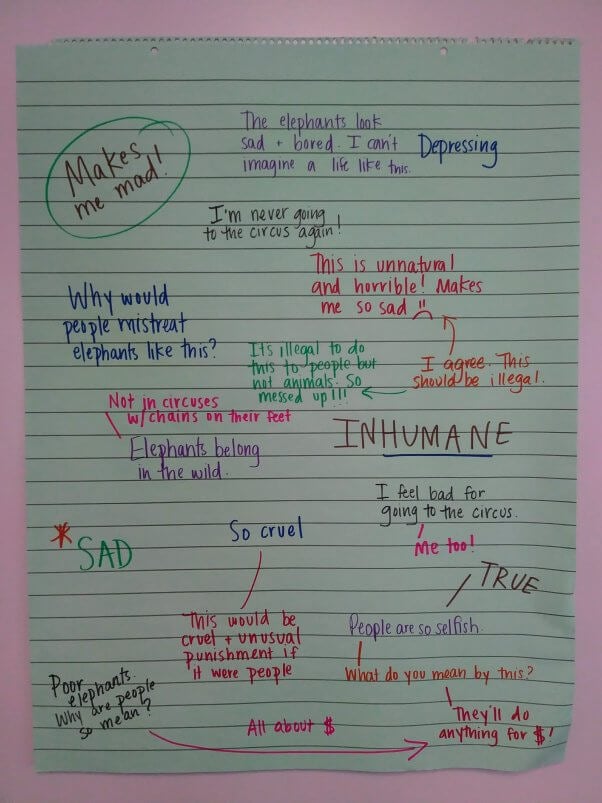
Step 3: Discuss and Reflect
Since students have had the opportunity to respond to the images in writing, without judgment from their peers, some may be more willing to share their thoughts in a whole-group conversation. Initiate and guide the discussion by asking the following questions:
- What did you notice as you participated in the gallery walk?
- What comments did you respond to? What comments received the most attention? Why?
- What similarities did you notice between the images? What differences did you notice?
- If you had to give this “exhibition” a title, what would it be and why?
Allow the dialog to unfold naturally, letting students do most of the talking. Pose questions, and clarify when necessary. Be sure to discuss the fact that Africans who were captured and forced into slavery were often compared to animals in an effort to justify their treatment—they were even referred to as “beasts.” Address this “might makes right” mentality and how it was the foundation of human slavery, child labor, and the denial of women’s equality and is now responsible for animal agriculture, animal experimentation, cruelty to animals in circuses, and other forms of animal abuse. Ask students, “Is the ‘might makes right’ mentality justified either in the exploitation of humans or in that of animals?”
Wrap up the gallery conversation by having students watch the video “How Bigotry Begins” and respond to one of the following journal prompts in their notebooks or on a blank sheet of paper:
- How are humans and nonhuman animals similar? How are they different? Do these differences make it right to imprison, abuse, or exploit animals? Why, or why not?
- What parallels can you draw between the historical discrimination against people of color, women, the LGBTQ community, people with disabilities, and/or others who have been marginalized or systemically denied basic human rights and the forms of inequality that animals endure today?
- Some people say that animals are so much like humans that we must capture and study them—for instance, in labs—in order to better understand our own species. On the other hand, they also say that animals are so unlike humans that they don’t experience pain, loneliness, and sadness, so they aren’t worthy of the same ethical consideration given to humans. Can both of these arguments be true, or are they contradictory?


